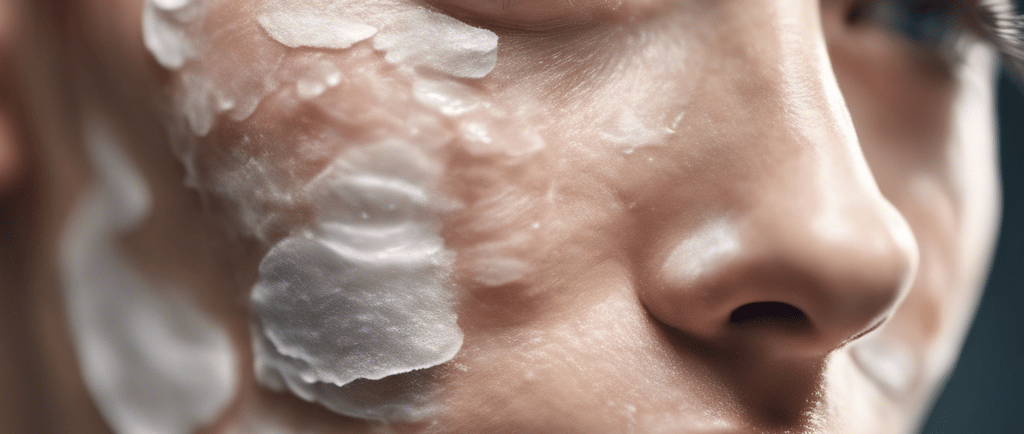Prep for Perfection: The Crucial Role of Skin Preparation Before a Chemical Peel
Robyn Scharman
12/3/20233 min read


Introduction
Chemical peels have become increasingly popular as a non-invasive cosmetic treatment for improving skin texture, reducing fine lines and wrinkles, and treating various skin conditions. However, before undergoing a chemical peel, it is crucial to prepare your skin adequately. Skin prep plays a vital role in ensuring the success and safety of the treatment. In this article, we will explore why skin prep is so important when getting ready for a chemical peel treatment.
Understanding Chemical Peels
Before delving into the significance of skin prep, it is important to understand what chemical peels are. Chemical peels involve the application of a chemical solution to the skin, which causes controlled damage to the outermost layers. This stimulates the skin's natural healing process and promotes the growth of new, healthier skin.
As we age, the natural process of cell turnover, where old, damaged skin cells are replaced with fresh ones, slows down. This gradual decline in cell renewal can lead to a dull complexion, uneven skin tone, and the accentuation of fine lines and wrinkles. Chemical exfoliation steps in as a powerful ally in promoting cellular turnover and unveiling the vibrant skin lying just beneath the surface.
The Benefits of Skin Prep
1. Enhanced Treatment Efficacy: Properly prepping your skin before a chemical peel helps to remove any surface impurities, excess oil, and dead skin cells. This allows the chemical solution to penetrate the skin more effectively, resulting in a more even and thorough treatment. It also ensures that the peel's active ingredients can target the deeper layers of the skin, maximizing the desired outcomes.
2. Reduced Risk of Complications: Skin prep is essential for minimizing the risk of adverse reactions and complications during and after the chemical peel. By thoroughly cleansing and preparing the skin, you remove potential irritants and contaminants that could interfere with the peel's chemical reaction. This reduces the likelihood of excessive redness, swelling, blistering, or infection.
3. Balanced pH Levels: Chemical peels work by altering the skin's pH levels to promote exfoliation and rejuvenation. Proper skin prep helps to balance the skin's pH prior to the treatment, ensuring that the chemical solution can work optimally. This leads to more predictable and consistent results.
4. Improved Tolerance: By gradually introducing active ingredients through a pre-peel regimen, skin prep helps to build tolerance and minimize discomfort during the chemical peel. This is particularly important for individuals with sensitive skin or those undergoing deeper peels, which can be more intense.
Effective Skin Prep Techniques
1. Consultation with a Licensed Skincare Professional: Before undergoing a chemical peel, it is crucial to consult with a skincare professional. They will assess your skin type, condition, and recommend the most suitable peel and prep regimen for you.
2. Gentle Cleansing: Start your skin prep routine by gently cleansing your face with a mild cleanser. This helps to remove any dirt, oil, or makeup that may be present on the skin's surface.
3. Exfoliation: Exfoliating the skin is an important step in skin prep. It helps to remove dead skin cells and allows the chemical peel to penetrate deeper into the skin. However, it is important to choose a gentle exfoliant that is suitable for your skin type to avoid irritation.
4. Avoid Sun Exposure: It is crucial to protect your skin from excessive sun exposure before a chemical peel. UV rays can increase the risk of post-peel complications and hinder the desired results. Apply a broad-spectrum sunscreen with an SPF of 30 or higher, and limit your time in the sun.
5. Avoid Harsh Skincare Products: In the days leading up to your chemical peel, avoid using harsh skincare products that can irritate or sensitize the skin. This includes products containing retinoids, alpha-hydroxy acids (AHAs), or strong exfoliants.
6. Hydrate and Moisturize: Keeping your skin hydrated and moisturized is crucial for optimal skin prep. Drink plenty of water and use a moisturizer suitable for your skin type to maintain its natural moisture barrier.
Proper skin prep is a crucial step in ensuring the success and safety of a chemical peel treatment. By enhancing treatment efficacy, reducing the risk of complications, balancing pH levels, and improving tolerance, skin prep plays a vital role in achieving desired results. Consult with a skincare professional and follow effective skin prep techniques to ensure a successful and satisfying chemical peel experience.
Address
Bliss Studios
1290 S. 500 W.
STE 9
Bountiful, UT 84087
Stay in the Loop
Contact
Call or Text Robyn
801-425-6802
Follow Me On Social Media
Get the latest savings and promos when you sign up
